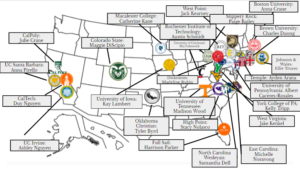New Fairfax Meals Tax Rejected By Voters
December 6, 2016
One of the new taxes that was on the ballot in Fairfax
County in the November 8 election was the meals tax.
This new tax would have increased the customer’s payment
by four percent of their total cost of food, generally when dining
out at a restaurant. The intent of this tax was to provide
more money for Fairfax County Public Schools. In the end,
however, Fairfax County voters rejected this proposal 54 to
46%.
A majority of voters declined to adopt this proposal
because it would have added a four percent tax for the prepared
meal to the six percent sales tax residents already have
to pay when they go out to eat. This new tax would have applied
to any prepared food or beverages at restaurants and
various food outlets. Even food that is found in the frozen
food aisle would have been included as part of this tax. Prepared
beverages at a grocery store however, would not be included
in this tax.
It is also understandable that people didn’t want to
pay an extra food tax in the frozen food aisle because they
are not paying for a service as they would at a restaurant. This
rejection of a new tax seems to play into some of the themes
both presidential candidates presented during this election
cycle, about fewer taxes for the middle class.
In the past Fairfax County has had trouble giving
money to the school system because of budget issues. Also
the county wanted to reduce the schools’ dependence on real
estate tax. Almost 65 percent of Fairfax County’s budget is
dependent on the real estate tax. State law has a limit on what
the county can tax and how much they can tax. Almost all of
the county’s non property tax revenues have hit their regulated
tax limit. The meals tax would have given Fairfax County
another way to raise revenue that isn’t a property tax. Going forward, the school board will continue to face challenges over how to fully fund the
FCPS school system.




